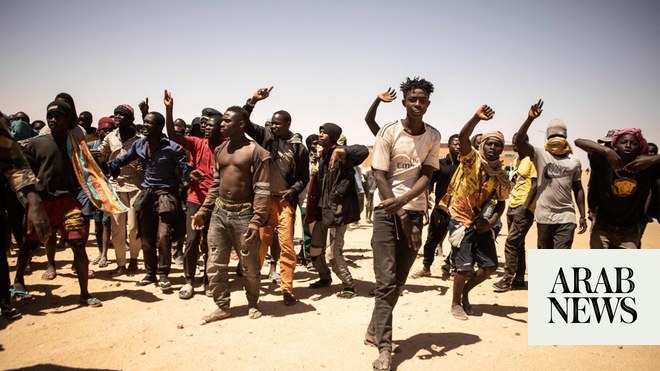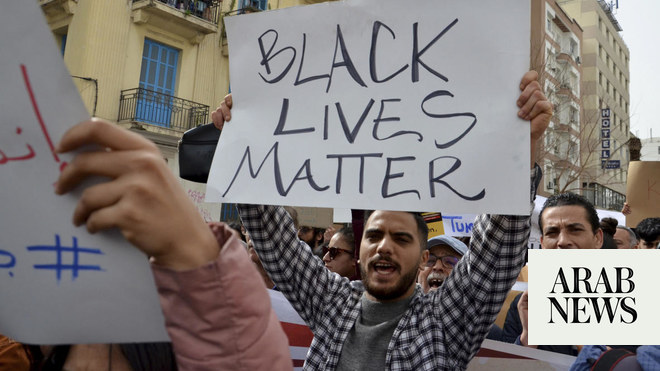
LONDON: More than 5,000 people have been arrested by Libyan authorities in the past week in a massive crackdown on migrants and refugees residing in Libya, with some detainees allegedly being subjected to severe physical and sexual abuse.
Many of those recently arrested were first captured and detained by the EU-supported Libyan Coast Guard and transported to migrant detention centers, where they were held in “inhumane conditions,” before being released back onto the streets of Libya.
Libyan authorities said the arrests of thousands from across the African continent — many of them fleeing war and persecution — are linked to illegal immigration and drug trafficking.
The EU has long worked with North African states including Libya and Morocco to prevent migrants from reaching Europe.
This form of cooperation negates the need for the bloc to process migrants in Europe, where laws and scrutiny of their treatment are more rigorous and where the political implications of mass inward migration are often negative.
Since 2017, more than 81,000 migrants have been intercepted at sea and returned to Libya by the country’s coastguard, which is trained and equipped by the EU and has also received assistance from the UK.
Medical charity Médecins Sans Frontières said the number of people in the Libyan capital Tripoli’s detention centers has more than tripled since Monday.
“During the raids on their homes, many of those captured were reportedly subjected to severe physical violence, including sexual violence,” the charity said in a statement. One young migrant was killed and at least five others sustained gunshot wounds, according to the UN.
“We are seeing security forces take extreme measures to arbitrarily detain more vulnerable people in inhumane conditions in severely overcrowded facilities,” said Ellen van der Velden, MSF’s operations manager for Libya. “Entire families of migrants and refugees living in Tripoli have been captured, handcuffed and transported to various detention centers. In the process, people have been hurt and even killed, families have been split up and their homes have been reduced to piles of rubble.”
In one detention center, MSF said, more than 550 women — including some who are pregnant, children, and newborn babies were crammed into cells. Around 120 detainees shared a single toilet.
Men were forced to stand because of overcrowding, and hundreds of people were also held outside with no shelter or shade. Several people required urgent medical attention.
One Eritrean man who evaded arrest said he had made contact with friends who had been detained.
“There is no water, no food, no stuff for sleeping,” he said. “There were some who tried to escape but got caught and were beaten and those who made it were wounded. Others paid to be released but unfortunately they got caught in the streets and went back to prison again.
“More than 90 percent of all the migrants are arrested,” he added. “It’s like we are playing hide-and-seek with the police or other forces now.”
A report by an independent fact-finding mission commissioned by the UN Human Rights Council announced on Monday that it had found that “murder, enslavement, torture, imprisonment, rape, persecution and other inhumane acts committed against migrants (in Libya) form part of a systematic and widespread attack directed at this population, in furtherance of a state policy” which may amount to crimes against humanity.
“All migrants — men and women, boys and girls — are kept in harsh conditions, (and some of them) die. Some children are held with adults, placing them at high risk of abuse. Torture (such as electric shocks) and sexual violence (including rape and forced prostitution) are prevalent.”
Libya has become a hub for Europe-bound migrants and refugees from Africa since the country devolved into conflict following the end of the former leader Muammar Qaddafi’s regime in 2011.
People smuggling and other black market activities have rapidly expanded since the central authority collapsed and control of the state was seized by a plethora of militias competing for money and power.
A fragile peace agreed in 2020 between the country’s main fighting forces is currently holding, but the UN has warned that violence could yet break out again ahead of the national elections planned for December.












